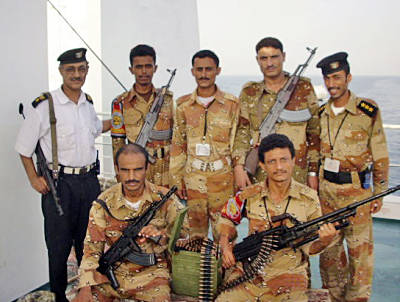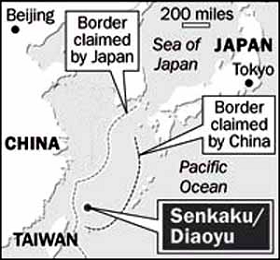Daily pictures of the Syrian military shelling the country’s cities, Libyan forces pounding rebel held towns and Egyptians protesting the armed forces’ alleged efforts to derail their revolution paint a dramatic picture of relations between the military and civil society across the Middle East and North Africa.
It’s a picture of a popular Arab revolt sweeping a swath of land that stretches from the Gulf to the Atlantic coast of Africa that appears to put Arab security and military leaders either in the dock of public opinion, the International Criminal Court in The Hague or on the dartboard of protesters on Cairo’s Tahrir Square.
It is also a picture that goes a long way to explain the differences in the efforts to build a democracy in Tunisia and Egypt, the two states where the revolt has toppled autocratic leaders; the battles that are engulfing Syria, Libya and Yemen; and the crushing of the uprising in Bahrain. Finally, it creates a framework to predict how revolts will unfold in Middle Eastern nations that have so far been able to contain protests or have yet to be hit by them.
One key to understanding the role of the military is the fact that Arab rulers, republican and monarchical, distrust their armed forces. To shield themselves from potential threats by the military, rulers have opted for different models: totally side lining the military, buying it off with a stake in national security and lucrative economic opportunities, focusing on key units commanded by members of the ruler’s family, creating parallel military organizations, staffing the lower and medium ranks with expatriates or most recently creating a separate mercenary force.
Ironically, the appearance of a uniformed military officer on Egyptian television in February to announce the departure of President Hosni Mubarak and subsequently to read edicts of the country’s new military rulers revived memories of the military coups of the 1960s, 1970s and 1980s in the region as well as elsewhere in the world.
Yet, nothing was further from the truth. The Egyptian military is eager to return to its barracks, but not before it ensures that its interests are protected in and after the transition to democracy.Mubarak secured the military’s loyalty by giving it control of national as opposed to homeland security and allowing it to build an independent relationship with its US counterparts that enabled it to create a military industrial complex as well as a commercial empire in other sectors.
To preserve its prerogatives, the military has announced that it willadopt prior to elections a declaration of basic principles that would govern the drafting of a constitution.The declaration would be designed to ensure that Egypt’s next elected leader will have no choice but to keep the military’s interests at heart.Elections would enable the military to return to its barracks but retain its grip on national security, including the right to interfere in politics to protect national unity and the secular character of the state; maintain its direct, unsupervised relationship with the United States; be shielded against civilian oversight and scrutiny of its budget; and keep control of its economic empire. In effect, the military would continue to enjoy the status it had under Mr. Mubarak.
The military’s approach is in stark contrast to that of Tunisia, which rid itself of its autocratic leader a month earlier than Egypt did, and where a commission is discussing the best way to limit presidential power involving a range of proposals ranging from a presidential to a parliamentary regime. The fact that President Zine El Abedine Ben Ali in one of his first moves after coming to power decimated the military and ensured that it unlike the Egyptian armed forces had no stake in the system he built has meant that the Tunisian force had no reason to obstruct real change, and if anything, was likely to benefit from reform that leads to a democratic system, in which it would have a legitimate role under civilian supervision.
If the role of the military in Egyptian and Tunisian military represent two models that explain why they did not resist the toppling of Messrs. Mubarak and Ben Ali and the differences between the two countries in their post-revolution transition, the structure of the military also provides models for responses to people power elsewhere in the Middle East.
In Syria, Libya and Yemen, autocratic rulers have been able to employ brutal force in so far failed attempts to crush revolts because rather than side lining the military they have ensured that key units are commanded by members of the family. This has given those well-trained and well-armed units a vested interest in maintaining the status quo and effectively neutralized the risk of potential defections in times of crisis.
As a result, defections from the Libyan, Syrian and Yemeni military have not significantly weakened the grip of autocratic rulers and their ability to brutally crackdown on anti-government protesters. The defections have strengthened the protesters and rebels but have not significantly altered the balance of power. The exception perhaps is Yemen wherean attack by a dissident unit on the presidential compound of President Ali Abdullah Saleh seriously injured him and many of his officials. That attack however was launched only after forces loyal to Mr. Saleh attacked the unit’s headquarters.
A fourth model is that of Bahrain where military and security forces crushed a popular revolt. The fact that much of the rank and file consists of foreigners, mostly Pakistanis, explains the regime’s ability to employ brutal violence in a tiny nation of only 1.2 million people even if it fails to answer the question why Bahrainis did not demonstrate the degree of resilience and perseverance exhibited by Syrians and Yemenis.
Finally, there is the Saudi and Iranian model with a variant in the United Arab Emirates that has been tested only to a limited degree. Both Saudi Arabia and Iran have built competing military forces; in Iran’s case the controversial Revolutionary Guards Corps and in Saudi Arabia the National Guard commanded by King Abdullah that operate independent of the armed forces. The UAE this year reportedly invested $529 million in the creation of a mercenary force commanded by Erik Prince, the notorious founder of Blackwater, designed to quell civil unrest in the country itself as well as in the region.
The structure of Middle Eastern military forces suggests that the Arab revolt is likely to be met with continued violence and bloodshed and potentially civil war in countries with competing military forces. It is a chilling prospect that promises a decade of instability and strife in a geo-strategically crucial part of the world.
About the Author:
James M. Dorsey is a senior fellow at Nanyang Technological University’s S. Rajaratnam School of International Studies and the author of the blog, The Turbulent World of Middle East Soccer.

 von
von 
